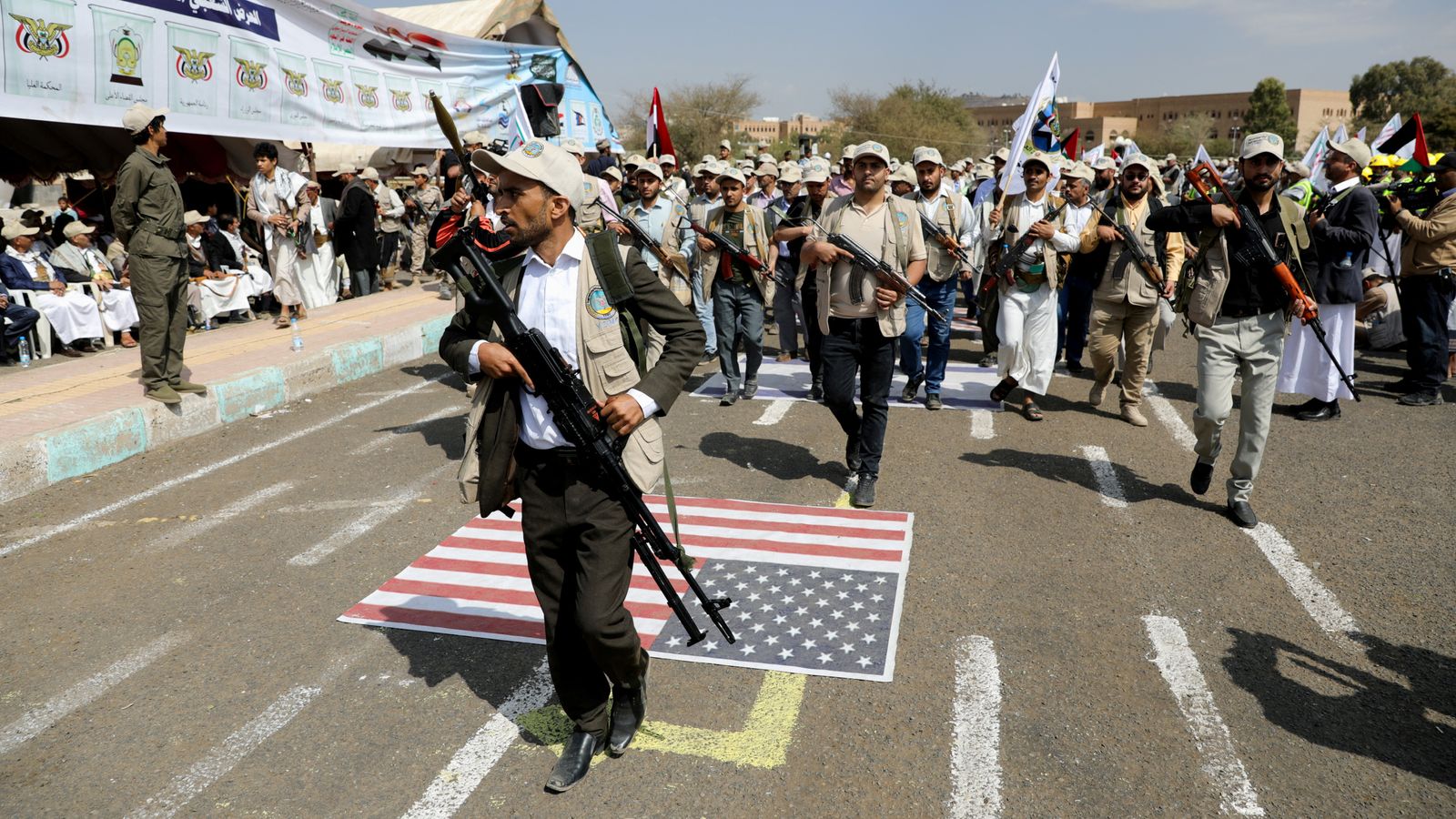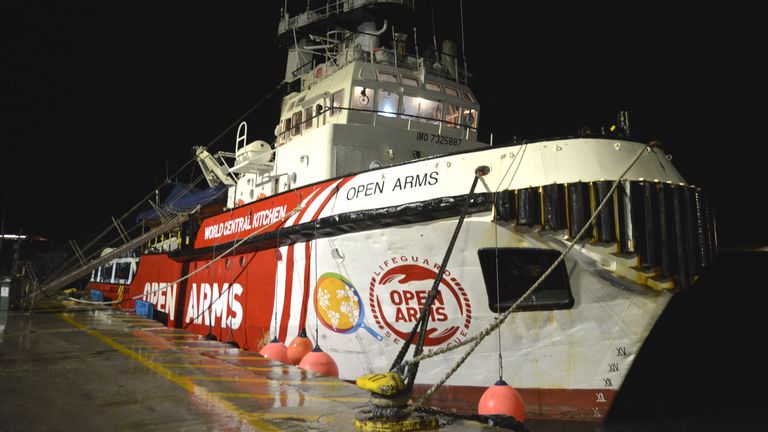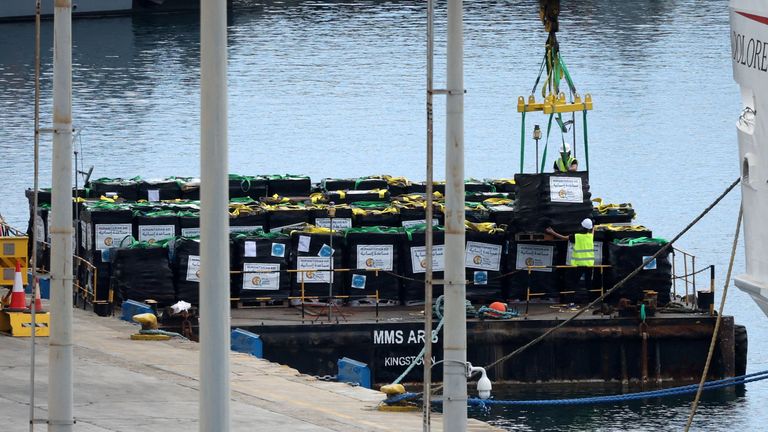Houthi drones shot down after ‘large-scale’ attack – as aid ship prepares to leave Cyprus for Gaza


Fifteen drones fired by Yemen’s Iran-backed Houthi rebels in the Red Sea and Gulf of Aden have been shot down by the American military and its allies this morning, authorities say.
US Central Command, also known as Centcom, said it had responded to a “large-scale” attack early on Saturday.
The uncrewed aerial vehicles (UAVs) presented “an imminent threat to merchant vessels, US navy and coalition ships in the region,” Centcom posted on X.
It said its navy ships and aircraft, along with “multiple coalition navy ships and aircraft”, shot down 15 UAVs.
“These actions are taken to protect freedom of navigation and make international waters safer and more secure,” it added.
The Houthis’ military spokesperson, Yahya Saree, said the group had carried out two military operations, the first of which targeted the Singapore-flagged bulk carrier Propel Fortune in the Gulf of Aden.
In the second operation, Saree claimed several US military destroyers in the Red Sea and the Gulf of Aden were targeted “by 37 drones”.
Centcom said the first attack set off explosions ahead of the Propel Fortune, but the ship continued on its way.
Advertisement
“The missiles did not impact the vessel,” it said. “There were no injuries or damages reported.”
The explosions came after a Houthi missile struck a commercial ship in the Gulf of Aden on Wednesday, killing three of its crew members and forcing survivors to abandon ship.
It was the first fatal strike in a campaign of assaults since November which the Houthis say is aimed at putting pressure on Israel to stop the war in Gaza – which faces the threat of famine after five months of conflict.
Meanwhile, a food aid ship was making preparations to leave Larnaca in Cyprus on Saturday and head to the besieged Palestinian territory where EU chiefs have said a “humanitarian catastrophe” is unfolding.
The vessel, which is owned by Spain’s Open Arms NGO group, will carry out a test journey of a new maritime corridor.

Under the plan, the ship will pull a barge loaded with 200 tons of rice and flour close to the Gaza shoreline.
Pontoon boats will then tow the barge to a pier at an undisclosed location which is being built by the World Central Kitchen charity, that has 60 food kitchens throughout Gaza to distribute aid.
Israel welcomed the sea route but said the ship would still need to complete security checks to its “standards”.
Earlier this week, US President Joe Biden announced plans to build a “temporary pier” on Gaza’s Mediterranean coast, which could take weeks. No US troops would enter Gaza to construct it.
The American military has already delivered about 124,000 meals during four airdrops over the Gaza Strip in recent days.
Read more:
Analysis: The West has lost patience with Israel over aid into Gaza
Would a temporary dock help get aid into Gaza? Experts discuss how it could work
Hunger is most acute in northern Gaza, which has been isolated by Israeli forces fighting Hamas and has suffered long cut-offs of food supplies.
At least 20 people have died from malnutrition and dehydration at the north’s Kamal Adwan and Shifa hospitals, according to the Hamas-run health ministry. Most of the dead are children.
Click to subscribe to the Sky News Daily wherever you get your podcasts
The war started after Hamas launched a cross-border attack on southern Israel on 7 October last year, killing 1,200 people, mostly civilians, and taking more than 250 others hostage.
Israel retaliated with strikes and a military ground assault in Gaza which have so far killed about 31,000 people, around two-thirds of them women and children, said the health ministry.
Around 80% of the population of 2.3 million have fled their homes, and UN agencies say hundreds of thousands are on the brink of famine.
More than 100 hostages in Gaza have been released.